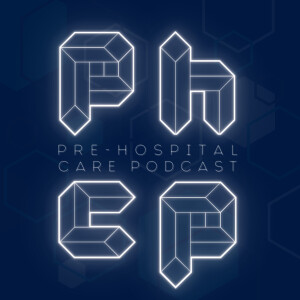
Fighting fatigue in the EMS workforce with Kristy Sanderson.
 2022-11-27
2022-11-27
In this session we will examine one of the common greatest human factors challenges within pre-hospital care, that of acute fatigue within clinical practice. The ambulance services are trying out different ways of working to help staff feel less tired at work and safer on scene, but these actions are often localised and have no empirical underpinning, and also we don’t know whether they are making working environments safer.
Kristy is investigating whether patient and staff outcomes can be improved through development and implementation of a fatigue risk management system (FRMS), as is done in other safety-critical industries like aviation and transport. The evidence suggests individual components of a FRMS which may be effective, Kristy is currently investigating the optimal packaging of these interventions. Kristy believes that FRMS adoption in the NHS needs local tailoring and understanding of barriers and facilitators. Kristy is looking at a way to integrate a comprehensive fatigue risk management system for the UK NHS ambulance sector that is acceptable, feasible, and likely to improve patient outcomes and staff wellbeing and experience.
Within the episode we will examine:
1. Kristy’s research approach to an agreed set of evidence-based and emerging components of a FRMS for the UK ambulance sector that are considered feasible and acceptable.
2. The wider CATNAPS study and its wide ranging primary and secondary outcomes.
2. The components of a comprehensive FRMS that are in use and why.
3. The ways in which front-line staff and patients experience current fatigue actions and potential to improve safety culture and reporting.
4. Development and usability testing of the FRMS and its implementation guide that allows tailoring to organisational and local context and is underpinned by a new theory of change and logic model.
5. The 12 hour day and and night shift, both pros and cons of this pattern of working.
6. Fatigue mitigation and how the FRMS may serve to support this.
7. Second and third order effects of fatigue.
More on CATNAPS and Kristy's research can be found here: https://arc-eoe.nihr.ac.uk/research-implementation/research-themes/mental-health-over-life-course/catnaps-fighting-fatigue-nhs
Please enjoy this episode with an engaging guest.
More Episodes
 2023-12-26
2023-12-26
 2023-12-24
2023-12-24
 2023-12-18
2023-12-18
 2023-11-27
2023-11-27
Create your
podcast in
minutes
- Full-featured podcast site
- Unlimited storage and bandwidth
- Comprehensive podcast stats
- Distribute to Apple Podcasts, Spotify, and more
- Make money with your podcast
It is Free
- Privacy Policy
- Cookie Policy
- Terms of Use
- Consent Preferences
- Copyright © 2015-2024 Podbean.com





